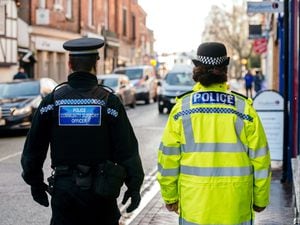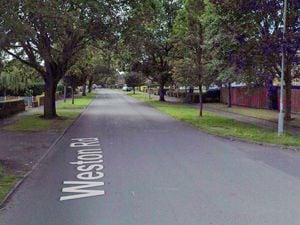Wait for justice gets longer as West Midlands courts backlog piles up
Crime victims have been left waiting for justice as crown courts in the region face a huge backlog of cases.

Ministry of Justice data shows there were 1,163 outstanding cases at Wolverhampton Crown Court at the end of September last year – up from 989 at the same point in 2020.
At Stafford Crown Court outstanding cases grew from 401 to 436 in a year.
It comes as magistrates are set to be given more sentencing powers in an effort to tackle the pile-up of cases waiting to be dealt with by criminal courts across England and Wales.
Andrew Wakeman, head of the criminal department at Talbots Law which has offices across the Black Country and Kidderminster, says there are cases which have been pending for significant periods of time.
"It's bad news for victims, defendants, everyone," he said.
"No one wants these cases to drag on for ever and ever.
"The longer it goes on, the more difficult it becomes for people to remember what has happened. People want to move on with their lives. It's not a happy situation.
"Covid and lockdowns have made a bad situation significantly worse. There was already a backlog before.
"They have brought in Nightingale courts but they are dealing with a significant backlog."
He said investment in the courts would help, but could not be guaranteed.
In September 2019, there were 690 cases outstanding at Wolverhampton Crown Court and 301 at Stafford Crown Court – showing the significant rise since.
Across England and Wales, 59,900 cases were waiting to be dealt with by crown courts at the end of September – a slight dip of one per cent compared to June, but a 17 per cent increase from 51,280 in September 2020.
Nearly a quarter of cases have been outstanding for a year or more.
Under plans announced by Justice Secretary Dominic Raab, the maximum sentence magistrates can hand out will be doubled to a year.
Currently, crimes warranting a jail term of more than six months are automatically sent to a crown court for sentencing.
Keeping more cases in magistrates’ courts, which have been “less severely affected” by Covid, means crown courts can better focus their resources on tackling the backlog, according to the MoJ.
Mr Raab said: “This important measure will provide vital additional capacity to drive down the backlog of cases in the crown courts over the coming years."
Mark Fenhalls QC, chairman of the Bar Council, warned the changes could increase the prison population and put further pressure on the MoJ budget.
Expected to come into force in the coming months, the changes will only apply to ‘either-way’ offences which can be dealt with by magistrates or crown courts.
It will mean defendants can still opt to have their case heard by a jury in a crown court.
Bev Higgs, national chairman of the Magistrates’ Association which has campaigned for sentencing powers to be extended, said the organisation was “delighted” with the announcement, adding: “It is absolutely the right time to re-align where cases are heard to ensure a safe, effective and efficient justice system."





